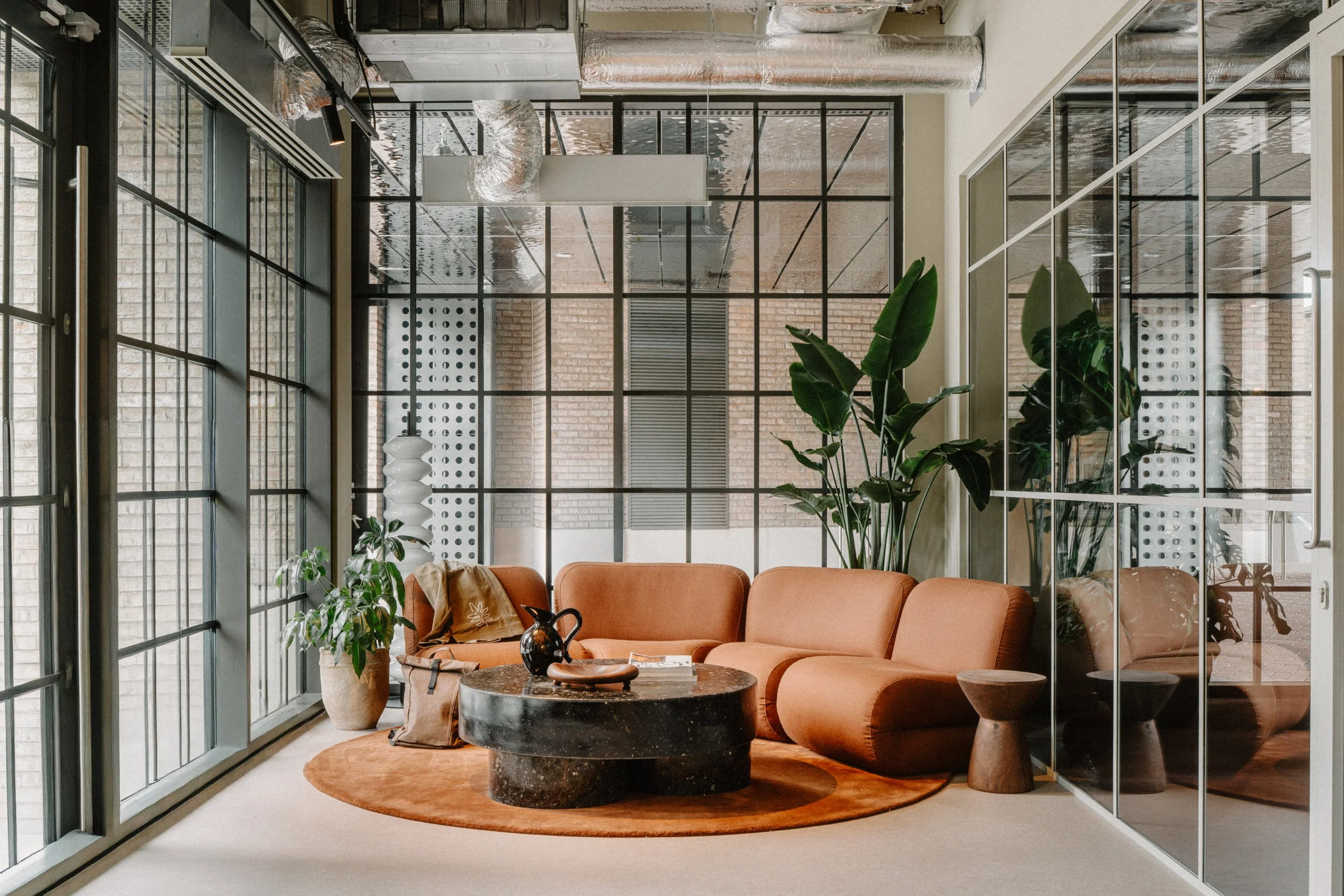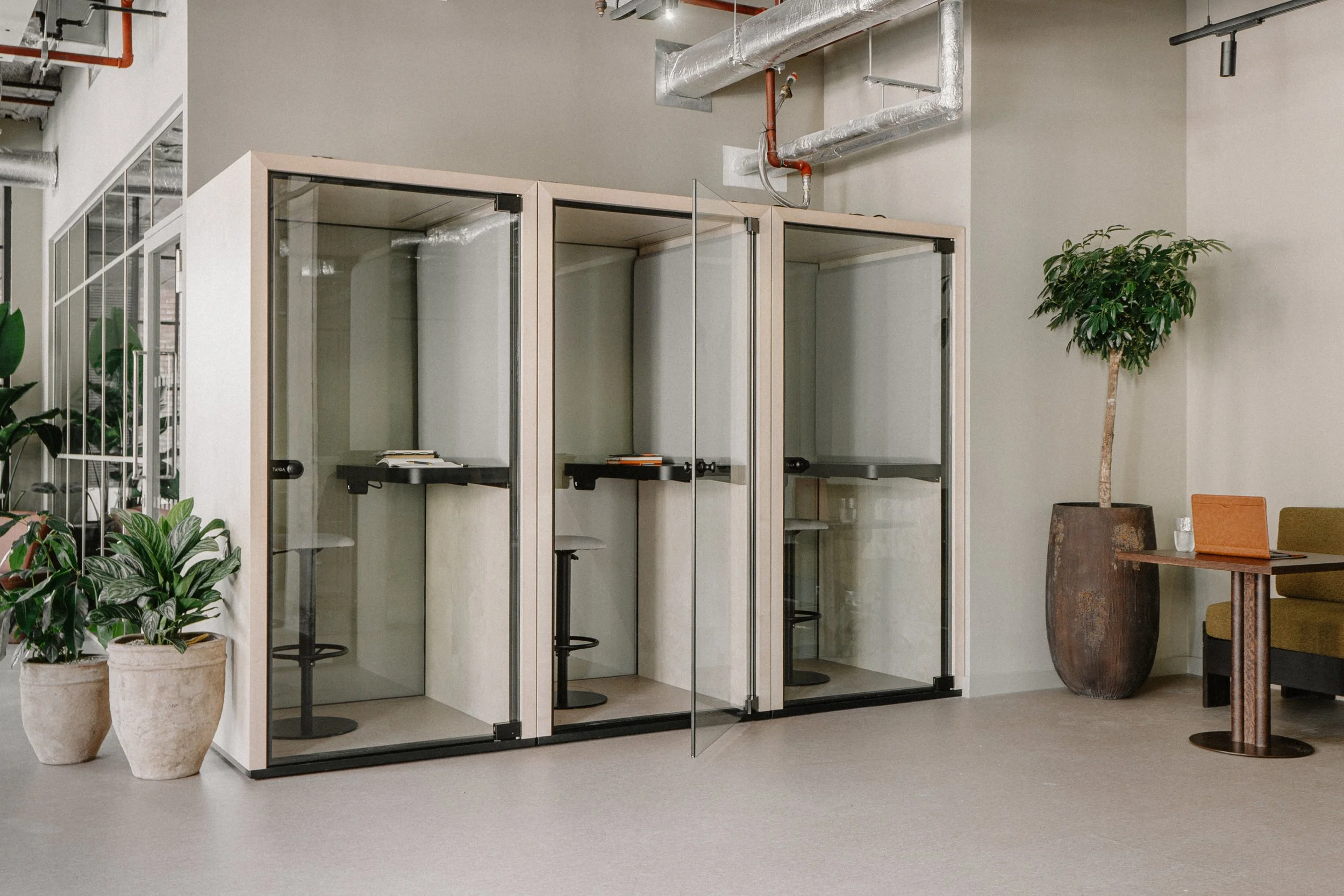Clubhouses the new office?
Look, I've seen enough sad hotel breakfast buffets and airport lounges to recognise institutional despair when I see it. The modern office? Same energy. Same fluorescent-lit purgatory where hope goes to die between 9 and 5.
Every morning, the same zombie shuffle. Rain-soaked commuters clutching overpriced coffee, searching for a hot desk like it's the last lifeboat on the Titanic. You came for human connection. You left with a migraine and existential dread. The meetings? Pure theater. Everyone playing their parts, pretending this matters, while secretly calculating if they can make their kid's recital.
We keep trying to resurrect the office like it's some beloved dive bar that just needs new management. Fresh paint, ping-pong tables, kombucha on tap. "This time will be different," they promise, rearranging deck chairs while the whole concept sinks. But you can't polish this particular turd. Not when the fundamental premise is broken.
The suits and their media mouthpieces trumpet each policy tweak like it's the second coming. "Three days in office!" "No, wait two!" As if the number matters when the experience itself is soul-crushing. Meanwhile, your actual life the one that matters happens in those brutal daily calculations: See the colleagues who barely acknowledge your existence, or have dinner with people who actually give a damn about you? Spend two hours and forty bucks commuting to take Zoom calls from a different chair?
The maths isn't hard. It never was.
So let's cut the crap. Stop debating office policies and start building clubhouses. Not some Silicon Valley playground with ball pits and nap pods I'm talking about spaces designed with actual intention. Places that understand why humans gather.
Think about the best meals you've had. They weren't in sterile corporate cafeterias. They were in places with soul, with purpose, where every element served the experience. That's what we need.
Picture three zones:
First, the workshop. Not some glass-walled conference room where everyone performs productivity, but a real collaborative space. Projects on the walls. Work you can touch, argue over, improve. Like a proper kitchen where the real work happens messy, loud, alive.
Second, the sanctuary. Every good establishment needs a quiet corner. Soft lighting, proper chairs, no interruptions. Where you can dive deep into the work that requires your full brain, not the scattered attention of open-plan hell. The kind of space where you emerge hours later, surprised by your own capability.
Third, the communal table. The beating heart. Where real conversations happen, where bad ideas die quick deaths and good ones catch fire. Not scheduled "innovation sessions” organic, necessary exchanges between people who chose to be there.
A clubhouse runs on rhythm, not policy. Tuesdays for skills workshops. Thursdays for team gatherings. Monthly residencies where outsiders bring fresh perspective. It's structured but not rigid, purposeful but not oppressive.
The MBAs want ROI? Here's your business case: People stay for experiences worth having. They leave when you treat them like inventory. Culture isn't built through mandate; it's cultivated through environment. You can force bodies into buildings, but you can't force connection, creativity, or giving a damn.
The real enemy isn't remote work, it's the corporates who see real estate as culture, who think cutting desks by 40% while demanding 100% presence is clever math. These are the same geniuses who'd serve fast-food burgers at a wedding to save money, then wonder why nobody showed up.
The fix isn't complicated. It doesn't require consultants or change management initiatives or town halls where executives pretend to listen. It requires honesty about what actually works and the courage to abandon what doesn't.
Stop trying to save the office. It's dead. Build something worth commuting for instead. Create spaces that respect both solitude and community, that understand work as something more than supervised time-serving. Build clubhouses, places people choose rather than endure.
Because at the end of the day, that's what matters: choice. The choice to gather when it serves us, to work where we work best, to build something meaningful with people who matter. Everything else is just corporate theatre, and frankly, we've all seen enough bad shows.





